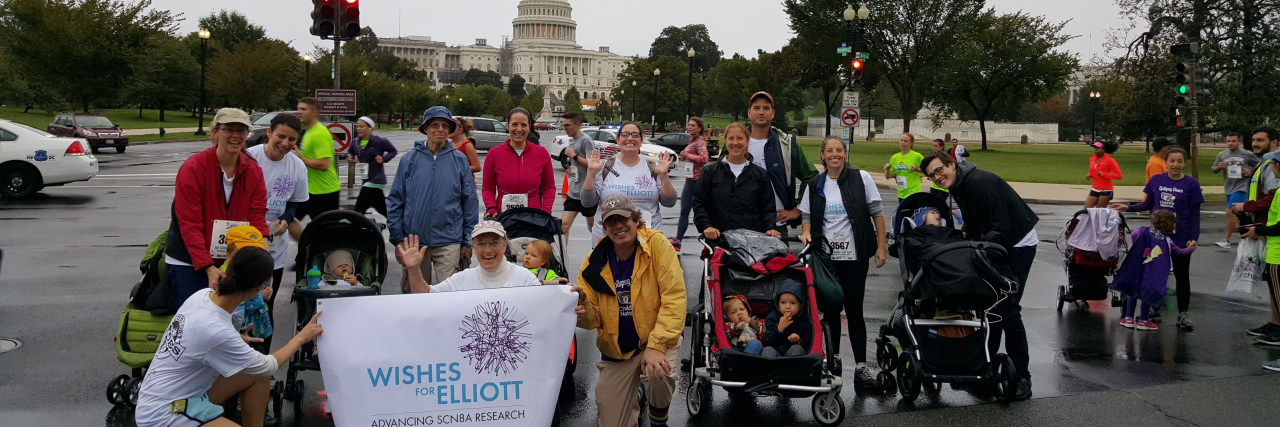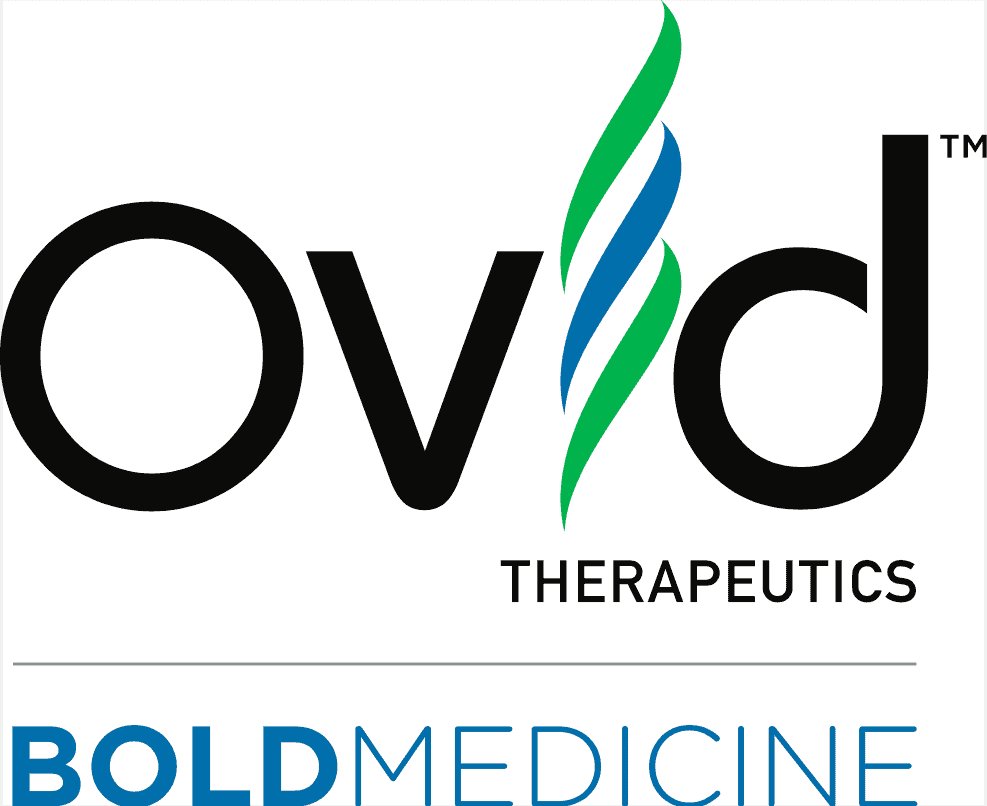Connecting and Collaborating: Lessons From a Decade of Caregiving and Activism
If you’re like me, the holiday season is an emotional time. Last month marked the 10th Christmas, Chanukah and New Year we celebrated with Elliott, our son who is profoundly affected by SCN8A — one of the many rare developmental and epileptic encephalopathies (DEEs).
I enjoyed the holidays, but no matter what the calendar says, Elliott requires the same constant, intensive support just to stay alive. Families with severely medically complex children know the drill all too well: there are medications to give, catheterizing to complete, diapers to change, syringes to wash, respiratory treatments to do, G-tube feedings to prepare — all before 9AM.
These tasks dominate every single day and don’t take a holiday.
Then there are the many other battles we must fight — with school districts, health care providers, insurance companies, and more, just to get our kids the services, care, and opportunities they need to survive.
Despite the intensity of the day-to-day demands and the emotionally draining impacts of managing my child’s fragile, often life-threatening conditions, I am honored to get to care for and spend time with such a sweet, patient, and loving kid.
Through my decade as a rare epilepsy mom, I have found great meaning and purpose in becoming an advocate and working alongside so many incredible peers as we work to improve care, treatments, and quality of life for all children like my son. I tell my story in the hopes that it may help other caregivers find a way of advocating for the community in their own way and along their own difficult journey — and share how you can lend your voice to amplify our call for urgently needed improvements.
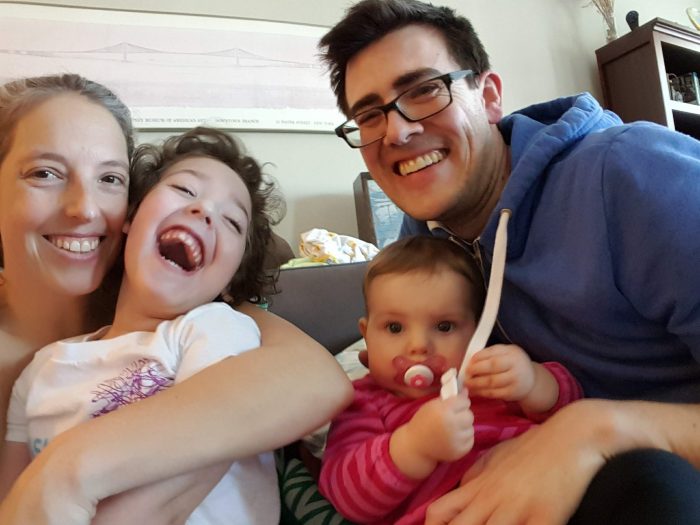
Finding purpose and promise along an uncertain path
With Elliott having just turned 10 this past November, I’ve been reflecting on our family’s path, which has not only helped us find purpose but accelerated scientific advancements and systemic changes to improve the quality of care and outcomes for our child, and others challenged by rare diseases.
Families like ours often go through a mourning process as the difficult reality of their children’s conditions become clearer. And we mourn all over again every time developmental milestones continue to elude our children.
Early on, we’re fighting desperately just to understand what’s happening. We are often faced with many layers of helplessness, and no matter how hard we try, we can’t resolve many of the medical mysteries behind our children’s conditions.
When there is so much out of our control, finding something that is, helps.
Mobilizing broadly for better understanding, care and outcomes
Families with profoundly impaired and medically fragile children marshal every bit of strength and energy to fight for the best care possible, but early on, we very often find ourselves overpowered by a system that lacks answers for our most basic questions and concerns.
For a number of reasons, our family chose early on to mobilize in every way we could think of to improve understanding of Elliott’s ultra rare condition, SCN8A. When we began, Elliott was among the first known individuals with an SCN8A mutation — today we know of roughly 800 cases identified globally. Our focus throughout has been to promote the improved understanding of and more evidence-based care for this new, complex and poorly understood disorder.
This was our way of moving beyond helplessness and finding some control in the chaos.
The initial name of our foundation, Wishes for Elliott – Advancing SCN8A Research, was meant to communicate that we were tackling what we thought would be Elliott’s greatest wishes — to find better care and treatment for those with this terrible disorder.
Over the last decade, we have partnered to convene scientists and clinicians to coordinate, collaborate, and reduce inefficiencies, we have helped bring to fruition and maintain a longitudinal global Registry to track the natural history and progress of this disorder, and we’ve hosted weekly meetings with families from around the world to improve understanding of SCN8A and help caregivers advocate for the best possible care for their children.
Along the way, I have discovered that collaboration with other like-minded, forward-thinking advocates is THE most essential component of progress. When you feel so alone in the world, partnering can be a powerful antidote for those feelings of isolation and powerlessness. And in reality, it is parent advocates who are the force behind much of the momentum and progress in rare diseases.
Choosing to become an activist is a personal choice and often one that can seem a luxury when we are in the depths of fighting for the lives of our children. I am lucky enough to have a strong support system and family network who support me in doing this work. We know this is important work to honor our children and bring a better quality of life for those to come. I find that doing this work is highly rewarding and combats those feelings of helplessness, but it isn’t without its own sacrifices — time not spent advocating directly for our own children, or spent away from our families.
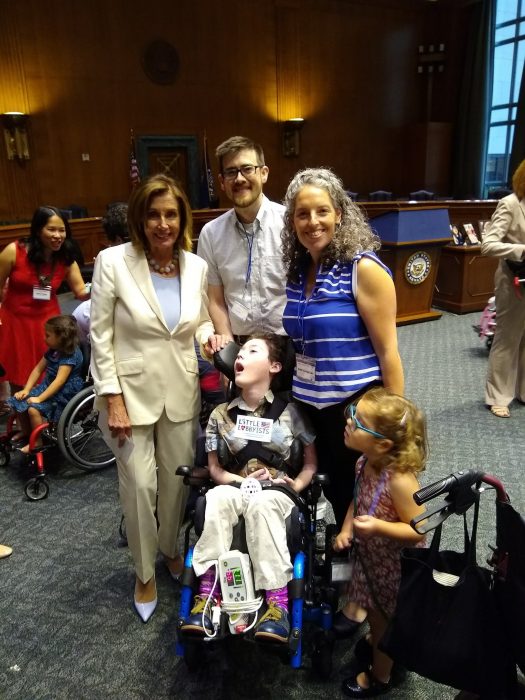
How activism brought our family a sense of fulfillment
I have found much comfort in our community and in connecting with other parents struggling with SCN8A in their children. We have joined forces to improve the lives of our children through sharing our stories and working together.
I have also realized that improving care and treatments for our children requires us to look beyond our children’s specific disorders and collaborate with the widest possible range of stakeholders — clinicians, researchers, thought leaders, drug developers, and beyond, in related but distinct disorders.
What started as a solitary journey a decade ago has yielded partnerships, collaborations, and shared accomplishments we couldn’t have dreamed of. Working with our partners, we have:
● Joined forces with another non-profit in our disease space to form the International SCN8A Alliance to foster global partnership with patient advocacy groups across the world and advance a patient registry that is making groundbreaking discoveries to improve our understanding of this mysterious and heterogeneous disorder
● Initiated and are hosting the first diagnosis and treatment guidelines, using evidence to improve care for all those living with SCN8A with a diverse group of global SCN8A clinicians and families
● Built and joined forces with more than 40 cross-disease visionary epilepsy patient leaders to launch DEE-P Connections, providing families of medically complex children the first curated resource center and research hub for the rare epilepsies addressing common challenges including SUDEP, therapies, rescue medications, COVID-19, and brain tissue donation
● Built partnership with preeminent outcomes researchers, industry leaders, and patient advocacy groups in a collaborative effort, The Inchstone Project, to develop validated outcome measures that capture the “inchstones,” not milestones, of progress made by those most severely affected, thereby improving the meaningful inclusion of this population in clinical trials
● Alongside a multidisciplinary team of clinician and epidemiological researchers, developed the only data on the experience across the DEEs with COVID-19 vaccines and infections in order to inform clinician and family decision making on COVID-19 prevention and care
● Worked with leaders across the diverse epilepsy space to address the unacceptable reality that despite many advancements in the science, clinical care and outcomes for the epilepsies has not noticeably improved over the past 20 years. Together, we have formed the Epilepsies Action Network, working to combine more voices across the epilepsies to advocate for increased funding, more strategic and coordinated programs, and a laser focus on improving treatments and outcomes.
● Played an active role in building and supporting critical partnerships throughout the rare disease space, including serving in leadership and participating in work groups such as the Rare Epilepsy Network, Epilepsy Leadership Council, the NINDS Curing the Epilepsies, Rare Disease Diversity Coalition, Epilepsy Foundation’s Research Roundtable for Epilepsy and beyond
Through pursuing these partnerships, we have found allies, champions, colleagues, and friends. But the major lesson has been that only by building these broad partnerships — and pushing well beyond our comfort zone — have we been able to contribute to the incredible work happening to advance improvements in the care and outcomes for our children.
And we can go so much further together—with more families speaking up about the unacceptability of the status quo. Below, I share more ways you can get involved.
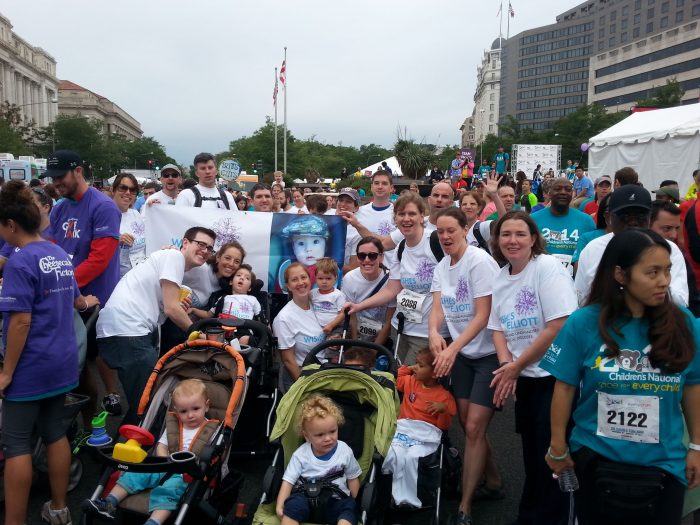
Why collaboration is essential to achieve broader engagement
It was initially hard for me to imagine stretching beyond being an advocate for just Elliott. He had so many immediate care needs — doctors appointments to be made and followed up on, therapies to schedule, medications to get approved, seizures to log. But once I started speaking with other advocates, it was clear that so many things unite us — the many comorbidities beyond seizures, challenges engaging pharmaceutical companies in our rare disorders, and gaining access to federal programs.
When more families speak up with a unified voice and a shared sense of urgency, we improve our ability to bring about significant and meaningful improvements in the care and quality of life of ALL peoples struggling with the many forms of epilepsy.
Our success actually depends on more families — just like yours — choosing to speak out. There’s no special skill or training necessary. By joining others who are calling for bold and transformative changes, YOU can improve the pace of progress in the epilepsies.
We welcome any advocates, families, or those interested in making a difference to join us in this mission. Telling your story to legislators, agency officials, or your local newspaper, radio, or TV station provides the compelling impetus of our message calling for better programs, policies, and funding to improve the treatment and outcomes of all our children.
As caregivers, we must be the voice for those who cannot share the intense challenges that come with debilitating disease. Working together we can advance bold, collaborative strategies to maximize meaningful change for all our children.
I’m honored to do this work alongside so many other dedicated caregivers and leaders. I hope you’ll join us!
Finally, a special message to other Mighty families
As I reflect on our unique but treasured 10th holiday season spent with Elliott, I’ve come to see that this path as mom of a severely impaired, medically fragile child is most meaningfully approached by finding partnership to improve the lives of Elliott and the wide range of children who are struggling. All the while, we never give up on our children.
My hope is that more parents of medically complex children, and the rare epilepsies in particular, choose to find a way to become involved in advocating for our loved ones on a larger scale. Fighting as part of a community of similarly isolated and exhausted caregivers is a powerful antidote to the helplessness and frustration that so many of us struggle with.
I encourage all families to find ways to contribute to advancing the fight against rare diseases that feels doable — write a letter to your representative, fundraise, write an op-ed, tell your story online. Doing something may help you to break through your isolation, find a community you didn’t know was there and help build a larger coalition of those with rare diseases and their caregivers who are speaking up to find better care and treatments.
___
RESOURCES
If you’re unsure of where to start, these resources below are great initial points of contact:
● Caregivers with medically complex children are invited to join the DEE-P Connections community for constantly expanding resources on navigating the path of finding the best care for your child and to be kept informed of how to support urgent advocacy priorities for the epilepsies (and on Facebook)
● Families with children struggling with any of the rare or general forms of epilepsy are invited to become a friend of the Epilepsies Action Network, which recently united 200 epilepsy leaders appealing to the President to expand federal support for the epilepsies; share your contact information with EAN here
● Anyone can get involved or encourage their communities to actively collaborate with others via the Epilepsy Leadership Council, the Rare Epilepsy Network, or advocacy efforts of the Epilepsy Foundation, CURE Epilepsy, Rare Disease Legislative Advocates, Little Lobbyists, Research!America, or the Haystack Project
● Parents and families can engage directly with their own local, state, or federal representatives and advocate for improved access, programs, resources — improved support for AIDS, pediatric cancers, Parkinsons, and many diseases were all fueled by armies of local activists. Follow organizations listed above for coordination of priority messages of greatest concern to you and your communities.

